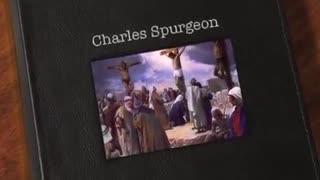Morning and Evening November 26th Zechariah 4:10 Ecclesiastes 9:10
Morning
"Whatsoever thy hand findeth to do, do it with thy might."
Ecclesiastes 9:10
"Whatsoever thy hand findeth to do," refers to works that are possible. There are many things which our heart findeth to do which we never shall do. It is well it is in our heart; but if we would be eminently useful, we must not be content with forming schemes in our heart, and talking of them; we must practically carry out "whatsoever our hand findeth to do." One good deed is more worth than a thousand brilliant theories. Let us not wait for large opportunities, or for a different kind of work, but do just the things we "find to do" day by day. We have no other time in which to live. The past is gone; the future has not arrived; we never shall have any time but time present. Then do not wait until your experience has ripened into maturity before you attempt to serve God. Endeavour now to bring forth fruit. Serve God now, but be careful as to the way in which you perform what you find to do--"do it with thy might." Do it promptly; do not fritter away your life in thinking of what you intend to do to-morrow as if that could recompense for the idleness of today. No man ever served God by doing things to-morrow. If we honour Christ and are blessed, it is by the things which we do today. Whatever you do for Christ throw your whole soul into it. Do not give Christ a little slurred labour, done as a matter of course now and then; but when you do serve him, do it with heart, and soul, and strength.
But where is the might of a Christian? It is not in himself, for he is perfect weakness. His might lieth in the Lord of Hosts. Then let us seek his help; let us proceed with prayer and faith, and when we have done what our "hand findeth to do," let us wait upon the Lord for his blessing. What we do thus will be well done, and will not fail in its effect.
Evening
"They shall rejoice, and shall see the plummet in the hand of Zerubbabel."
Zechariah 4:10
Small things marked the beginning of the work in the hand of Zerubbabel, but none might despise it, for the Lord had raised up one who would persevere until the headstone should be brought forth with shoutings. The plummet was in good hands. Here is the comfort of every believer in the Lord Jesus; let the work of grace be ever so small in its beginnings, the plummet is in good hands, a master builder greater than Solomon has undertaken the raising of the heavenly temple, and he will not fail nor be discouraged till the topmost pinnacle shall be raised. If the plummet were in the hand of any merely human being, we might fear for the building, but the pleasure of the Lord shall prosper in Jesus' hand. The works did not proceed irregularly, and without care, for the master's hand carried a good instrument. Had the walls been hurriedly run up without due superintendence, they might have been out of the perpendicular; but the plummet was used by the chosen overseer. Jesus is evermore watching the erection of his spiritual temple, that it may be built securely and well. We are for haste, but Jesus is for judgment. He will use the plummet, and that which is out of line must come down, every stone of it. Hence the failure of many a flattering work, the overthrow of many a glittering profession. It is not for us to judge the Lord's church, since Jesus has a steady hand, and a true eye, and can use the plummet well. Do we not rejoice to see judgment left to him?
The plummet was in active use--it was in the builder's hand; a sure indication that he meant to push on the work to completion. O Lord Jesus, how would we indeed be glad if we could see thee at thy great work. O Zion, the beautiful, thy walls are still in ruins! Rise, thou glorious Builder, and make her desolations to rejoice at thy coming.
===
Charles Haddon (C.H.) Spurgeon (19 June 1834 -- 31 January 1892) was a British Particular Baptist preacher who remains highly influential among Christians of different denominations, among whom he is still known as the "Prince of Preachers". He was a strong figure in the Reformed Baptist tradition, defending the Church in agreement with the 1689 London Baptist Confession of Faith understanding, and opposing the liberal and pragmatic theological tendencies in the Church of his day.
Spurgeon was a prolific author of many types of works including sermons, an autobiography, commentaries, books on prayer, devotionals, magazines, poetry, hymns and more.Many sermons were transcribed as he spoke and were translated into many languages during his lifetime. Spurgeon produced powerful sermons of penetrating thought and precise exposition. His oratory skills held throngs of listeners spellbound in the Metropolitan Tabernacle and many Christians have discovered Spurgeon's messages to be among the best in Christian literature.
http://conservativeweasel.blogspot.com/2011/11/daily-devotional-sunday-27th-november.html
AUAWN1127111
-
 4:01
4:01
Morning and Evening from Spurgeon
2 years agoMorning and Evening December 26th Matthew 28:20 1 Corinthians 15:45
405 -
 15:40
15:40
Bearing
1 day agoAustralian Break Dancer Raygun SPEAKS OUT! Was It All RIGGED?
47.7K83 -
 1:16:48
1:16:48
Squaring The Circle, A Randall Carlson Podcast
1 day ago#015 Close Encounter While Man Sleeps Pt 1# - Squaring The Circle: A Randall Carlson Podcast
51.6K44 -
 25:40
25:40
The Anthony Rogers Show
3 days agoPolitically Incorrect in Hawaii: Anthony Rogers Stand Up Comedy (Rare)
48.5K9 -
 4:05
4:05
scoutthedoggie
1 day agoAirsoft War Gate Pulsar Scotland
50.6K5 -
 2:27:21
2:27:21
ThatStarWarsGirl
21 hours agoTSWG LIVE: I Pissed Off Twitter Crazies AGAIN!🤣😂
49.3K11 -
 33:29
33:29
GameLeap RAID Shadow Legends
19 hours agoBEST ARTIFACT SETS TIER LIST (2024) - Farm This Gear! - Raid: Shadow Legends Guide
53.9K14 -
 3:41
3:41
Hack
12 hours agoHow to make a mini lathe in 3 Minutes
48K3 -
 21:27
21:27
barstoolsports
1 day agoJersey Jerry Forces Dave Portnoy into Impromptu Contract Negotiation
56.7K8 -
 50:56
50:56
The Osbournes
12 days ago $1.56 earnedBEST OF OZZY: Iconic Ozzy Osbourne Moments
75.4K23